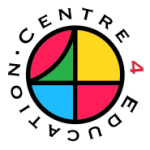Hunt for Europe 2.0
The flight simulator for language and culture learning



The Game
The Hunt for Europe (HFE) is an online, interactive language and culture training system for learning English, German, Spanish, Italian, Greek, Danish – and soon, French & Dutch. It combines speech recognition based language learning with a virtual 3D world where learners apply their newfound communication skills and cultural knowledge to complete tasks in a simulated environment, depicting actual locations in the partner countries around Europe. Here, they have to interact with and talk to the local population in order to accomplish the ultimate goal of the game – finding and helping a number of well-known cultural icons in the respective countries, such as Beethoven, Harald Bluetooth, Camillo Benso, Queen Isabel the 1st, Pherekydes the Greek philosopher and St. Brendan, the Irish navigator.
The pedagogical approach is based on constructivist learning theory, more specifically on task-based second-language learning theory. Task-based language learning emphasizes learning in the context of tasks that require learners to communicate meaning, as in real life (Ellis, 2003).
The Purpose
In the Official Journal of the European Union, the “Council Recommendation on a comprehensive approach to the teaching and learning of languages,” it states that it is essential for EU citizens to know at least two languages in addition to their mother tongue. The lack of language competencies is one of the main barriers to participation in European education and training. It is clear that knowing a foreign language is a skill that equips people better for the labor market, but the promotion of language learning also means supporting understanding different cultures, and the transnational debate, as well as strengthening the European identity. “Thus, multilingualism has a strategic dimension for Europe: as the Council itself argues, “”multilingual competence is at the heart of the vision of a European Education Area.”
The Details
HFE consists of 2 separate but mutually dependent projects, HFE 1.0 running from 2017-2019, focused on creating an online e-learning system where learners could practice and learn the basic linguistic and cultural artifacts needed in order to start talking and interacting in a new language and a single player experience in which the learner could utilize what had been learned and see if it worked.
HFE 2.0 ran from 2020 – 2022 (finished in September), and expanded on HFE 1.0, by Developing an Artificial Intelligence algorithm that monitors how the learner is faring and makes suggestions as to where the learner should go next. It also implemented a multiplayer, social gaming, aspect where two players can play the game together and have to help each other complete it, both through the interactive, speech recognition based dialogues, but also through actual tasks that need two people to solve them. In the end, the players will meet the Goddess Europa in the EU Parliament, who will tell them about being united in diversity and the EU values.
The HFE project is currently working on adding French and Dutch to the list of available languages and are looking to add more in the future, hoping to be able to aggregate all EU languages in one freely available World Of Language & Culture Learning Platform.
For more information, contact Thomas Hansen at thomas@ludusxr.com
Partners
Center for Education (Mallorca) (Silja Tege)
ENAIP Piemonte (Italy) (Francesca Costero)
WISAMAR (Germany) (Katrin Echtermeier)
Munster Technological University (Ireland) (Kristin Brogan)
Die Berater (Austria) ( Xi Zheng)
Vardakeios School of Hermoupolis (Greece) (Eugenia Kollia)
LudusXR (Denmark) (Thomas K. Hansen)







The European Commission’s support for the production of this publication does not constitute and endorsement of the content, which reflect the views only of the authors, and the Commission cannot be held responsible for any use which may be made of the information contained therein.
2020-1-IE01-KA201-065973
